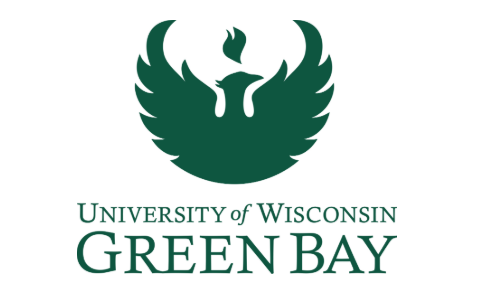
Seeing Stars: UW-Green Bay Earns Strong Sustainability Rating
Green Bay, Wis.—The University of Wisconsin-Green Bay is seeing STARS, thanks to a “Silver” environmental rating from the Association for the Advancement of Sustainability in Higher Education AASHE. STARS—the Sustainability Tracking, Assessment, & Rating System—is a program that measures and encourages sustainability in all aspects of higher education. The designation is both a nod to UW-Green Bay’s “Eco U” roots, and a springboard for ongoing and future environmental efforts.
The University was also “Silver” in 2017 with a score of 45, but this time, its rating of 54.4 is far closer to the 65-point threshold for “Gold” — a sustainability goal in the years’ ahead.
UW-Green Bay’s Sustainability Coordinator, Daniela Beall, said the University improved more than six points for Academic Courses and another six for Learning Outcomes.
“Overall, academics, and specifically curriculum is where we are strongest for sustainability,” said Beall. “We also earned “innovation and leadership” bonus points for our Campus Cupboard, high Campus Pride Index, Sustainability Projects Fund, Pay Scale Equity, and Sustainability Course Designation. None of this would be possible without partnerships with faculty, staff, students, and community members. I’m excited to continue collaborative efforts to improve our impact, and subsequently our STARS score, and invite anyone interested in supporting these efforts to reach out—we can do so much more together.”
Long known for its Eco U reputation, UW-Green Bay Chancellor Michael Alexander created a focus on sustainability as one of the institutions six key initiatives.
“UW-Green Bay’s participation in STARS provides a valuable measuring tool to help us define and quantify our strengths,” Alexander said. “It also brings to light those areas where we can take action to better meet the challenge of sustainability across the University. One of these priorities is to go back to our roots as Eco U and focus on the sustainability and environmental health of our region. We have hired a University Sustainability Coordinator and aligned all efforts in sustainability under an Office of Sustainability that connects across the University. We are investing in the condition of the natural spaces that we manage and will be hosting the third National Estuary Research Reserve on the Great Lakes. We are fortunate to be next to the largest freshwater estuary in the world and seek to be a leader in sustaining the abundant natural resources that surround our campuses. I am also proud that our students embrace this effort and have even created a student fee to support sustainability efforts at UW-Green Bay.”
With more than 900 participants in 40 countries, AASHE’s STARS program is the most widely recognized framework in the world for publicly reporting comprehensive information related to a college or university’s sustainability performance. Participants report achievements in five overall areas: 1) academics, 2) engagement, 3) operations, 4) planning and administration, and 5) innovation and leadership.

